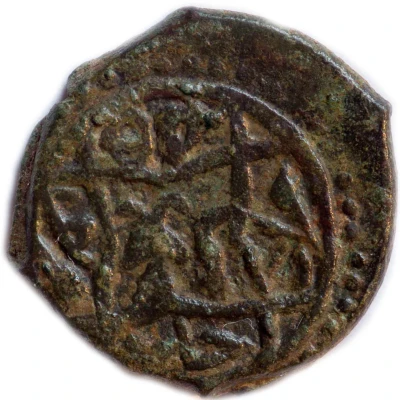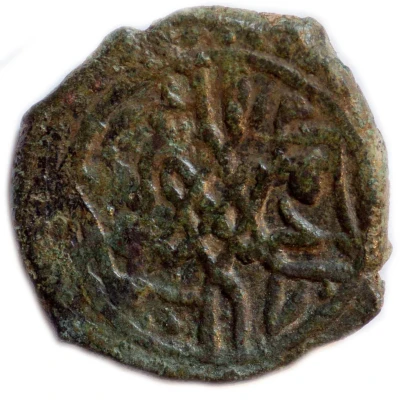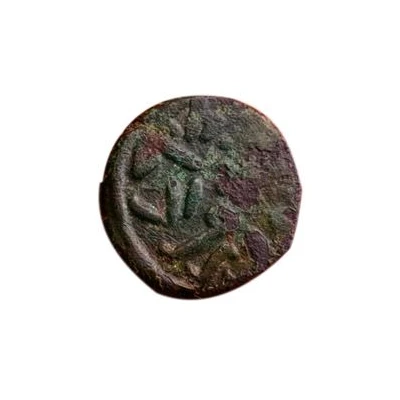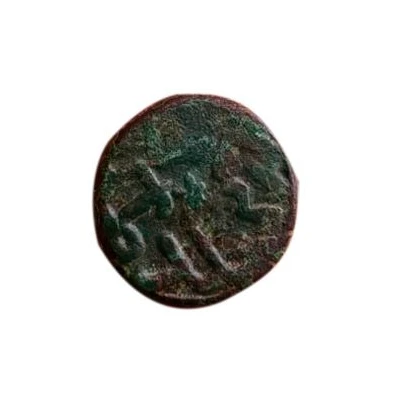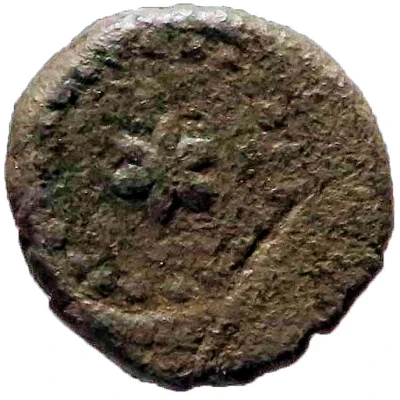


Manghir - Anonymous attributed to the second reign of Mehmed II, Constantinople ND
| Copper | 2.66 g | 14.8 mm |
| Issuer | Ottoman Empire |
|---|---|
| Sultan | Mehmed II the Conqueror (1444-1446, 1451-1481) |
| Type | Standard circulation coin |
| Years | 1451-1481 |
| Value | 1 Mangir |
| Currency | Akçe (1327-1687) |
| Composition | Copper |
| Weight | 2.66 g |
| Diameter | 14.8 mm |
| Shape | Round (irregular) |
| Demonetized | Yes |
| Updated | 2024-10-06 |
| Numista | N#127141 |
|---|---|
| Rarity index | 90% |
Reverse
Inside a circle and separated by an horizontal line, the name of the mint.
Around, a beading.
Lettering:
ضرب
قسطنطينية
Translation:
Duriba bi
Konstantiniyye :
"Struck in
Constantinople."
Comment
Mehmed II reigned twice (between 1444 and 1446, then between 1451 and 1481).Sultan Mehmet II the Conqueror or Mehmed II "Fatih" (Turkish: Fatih Sultan Mehmet Han) was the 7th sultan of the Ottoman Empire.
He was the fourth son of Murad II. He was born on March 30, 1432 in Edirne to Huma Hatun.
The capture of Constantinople in 1453 earned him the nickname "Fatih" (Conqueror), and he proclaimed himself "Kayser-i Rum", literally "Caesar of the Romans". He reigned twice (between 1444 and 1446, and again between 1451 and 1481); in the interim, his father Murad II took over. He was a vigorous man and a formidable military leader.
He had a keen interest in literature and the fine arts. He wrote poems in Turkish and Persian, and composed songs. He was interested in philosophy and the sciences, astronomy in particular. He brought Italian artists to Constantinople, including Gentile Bellini, who stayed in the capital for only a few months to paint the portrait of the Sultan he had been commissioned to paint for the peace agreement between the Republic of Venice and the Ottoman Empire (January 25, 1479). According to some uncredited authors, who were quick to idealize the monarch, Mehmed II learned Arabic, Persian, Hebrew, Latin and Greek, but his knowledge of at least the last two languages is highly questionable.
He died on May 3, 1481 in Gebze. He was succeeded by his son Bayezid.
He had seven wives, one daughter and four sons: Mustafa, Bayezid, Cem (or Jem/Djem) and Korkut.
https://fr.wikipedia.org/wiki/Mehmed_II
Interesting fact
One interesting fact about the Manghir coin is that it was used as a form of currency during the Ottoman Empire, which was one of the most powerful and influential empires in history, spanning across parts of Europe, Asia, and Africa for over 600 years.
